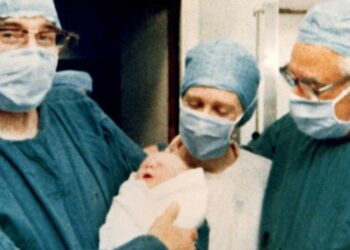A balanced diet is the first step towards achieving good health physically, mentally, and emotionally. And a healthy diet is not the same for all. It depends on the age, daily routine, profession, and other health disorders if you have some and the medications for that/ those ailments. The physiological structure of men and women are vastly different. So, their nutritional requirement also varies. They sometimes need added supplements for body functioning beside the nutritious food.
There’s no ideal diet that you can suggest to everyone to obtain the necessary nutrients. One food that works excellent for you might cause harm to someone else. Be very careful about what you are consuming. Don’t begin to take something just by listening to any layman. Better you carry out thorough research for optimum results and to make the best version of yourself health-wise.
You can reduce several health issues just by eliminating junk food from your life. But surprisingly even after staying away from the oily and spicy street food and eating plenty of fruits, vegetables and drinking adequate water, the need of all the vitamins and minerals are not fulfilled. In this situation, you need to intake dietary food supplements to mediate the body’s need.
Here are the essential supplements that can boost the health of women.
1. Calcium
It has a major role in bone building. Along with that, it is also needed for healthy muscles, nerves, and heart. You should start to build up your bone density in the 20s because you will lose it gradually in the later years due to some natural feminine physiological processes. A girl needs 1000mg of calcium per day in her 20s. If the calcium your body is absorbing from the milk, dairy products, pulses, leafy greens, nuts, nut butter, broccoli, or almonds is not up to the mark, then you must start taking supplements.
2. Vitamin D
This is also required for bone strengthening, and it reduces the risk of heart disease and cancer to some extent. This accelerates the absorption of calcium in the stomach and intestines too. Sunlight is the major source of vitamin D. Aside from it, you can get vitamin D from salmon, tuna, cereals, fruit juices, and fortified milk. Your skin absorbs vitamin D from the sun.
So you must go out for a walk, jog, or light workouts under the sun during early morning or twilight when the sunlight is gentle. If you always stay indoors, you should consult a medical practitioner to examine your health. Bone and back pain, severe hair loss are the symptoms of vitamin D shortage. If your age is between 1 and 70 years, you need 600 IU of vitamin D every day while the women with age more than 70 years need 800 IU of vitamin D.
3. Iron
This is another inevitable mineral with multiple benefits. You need iron for brain functioning, healthy red blood cells. It also increases your energy level. Red meat is a rich source of iron, but during certain circumstances like having the menstrual cycles, pregnancy, going through puberty are the life phases while you may need more than usual.
Vegetarians and vegans can also take iron supplements to meet the requirement. The supplements are available in the form of ferrous sulfate, ferric sulfate, ferrous gluconate, or ferric citrate. Every woman whose age is more than 19 years, needs 17.o-18.9 mg of iron every day. The median dietary iron intake in pregnant women is 14.7 mg/day.
4. Folate
Folate, also known as folic acid, is essential for fetus development to prevent any congenital disabilities. So, it must be included in the diet of expecting mothers. Furthermore, it also helps to fight against mental health disorders such as depression. Avocado, beans, citrus fruits, leafy greens are enriched with folic acid. A pregnant woman needs 400mcg to 600mcg folate. The doctors state that when folate is taken along with food, your body can absorb 85% of it, but surprisingly, you can absorb it entirely if you consume it in an empty stomach.
5. Vitamin B-12
Vitamin B Complex is a combination of multiple vitamins that work as a team to keep you fit and fine. The primary function of the B-complex is to supply energy to your body. After the absorption, it splits into various micronutrients that your body uses in the form of carbohydrate, protein, and fat. The recommended dosage for healthy women is 1.8 mcg every day while for pregnant and breastfeeding women, the requirement is 2.6 mcg and 2.8 mcg, respectively.
Vitamin B-12 is one such micronutrient that plays a major role in keeping the nerves and blood cells. It also assists in building DNA. Eggs, fish, poultry, meat are the common source of vitamin B-12. The vegetarians suffer from B-12 deficiency more since the source is mainly animal-based. Typically an adult woman needs less than 3 mcg. Take the multivitamin supplement containing B-12 in the form of Methyl B-12 because your body will absorb it quickly.
6. Fish oil
The oily fish, like salmon, mackerel, and sardines, are the main source of two essential omega-3 fatty acids, EPA, and DHA. Omega-3 is capable of reducing the risk of some serious health issues like stroke, heart attack, some types of cancer, rheumatoid arthritis, which are very common in modern times. 1100 of omega-3 is good for women’s health.
The cardiac specialists advise eating oily fish of cold water at least twice a week. The benefits of eating these fishes are proven. If you are a vegetarian or vegan or do not like the smell of fish, you can opt for fish oil supplements to get the benefits. 250–500 mg per day of combined EPA and DHA, of which fish oil is an excellent source, is enough.


































































































































































































